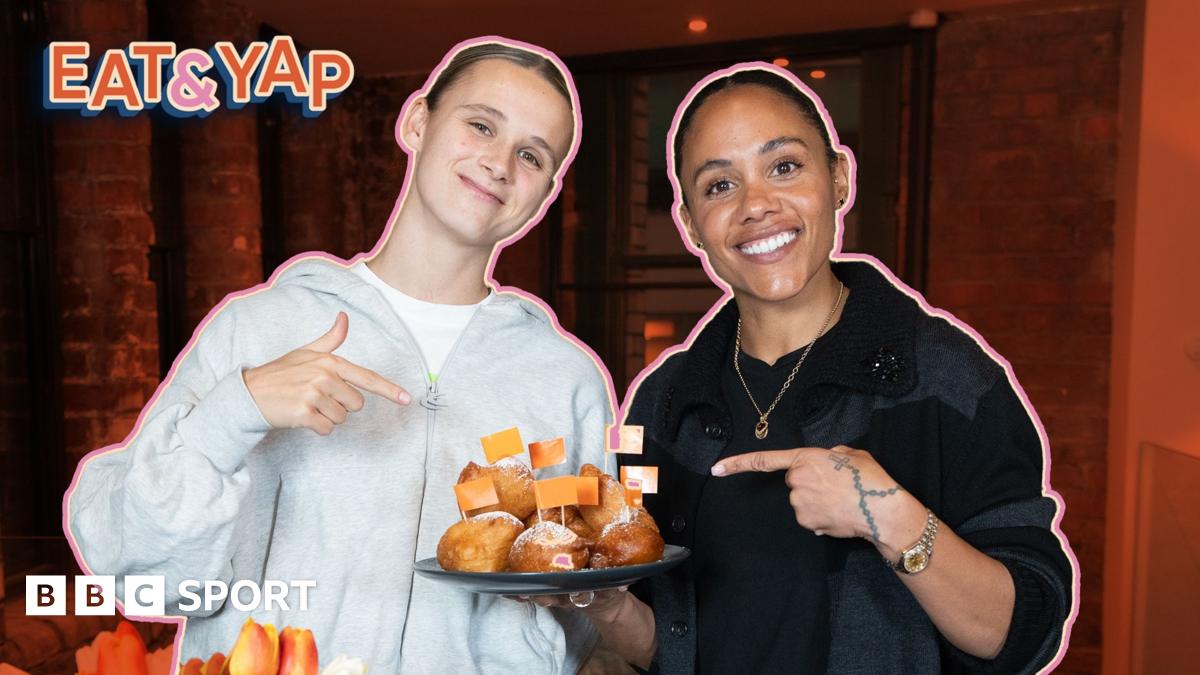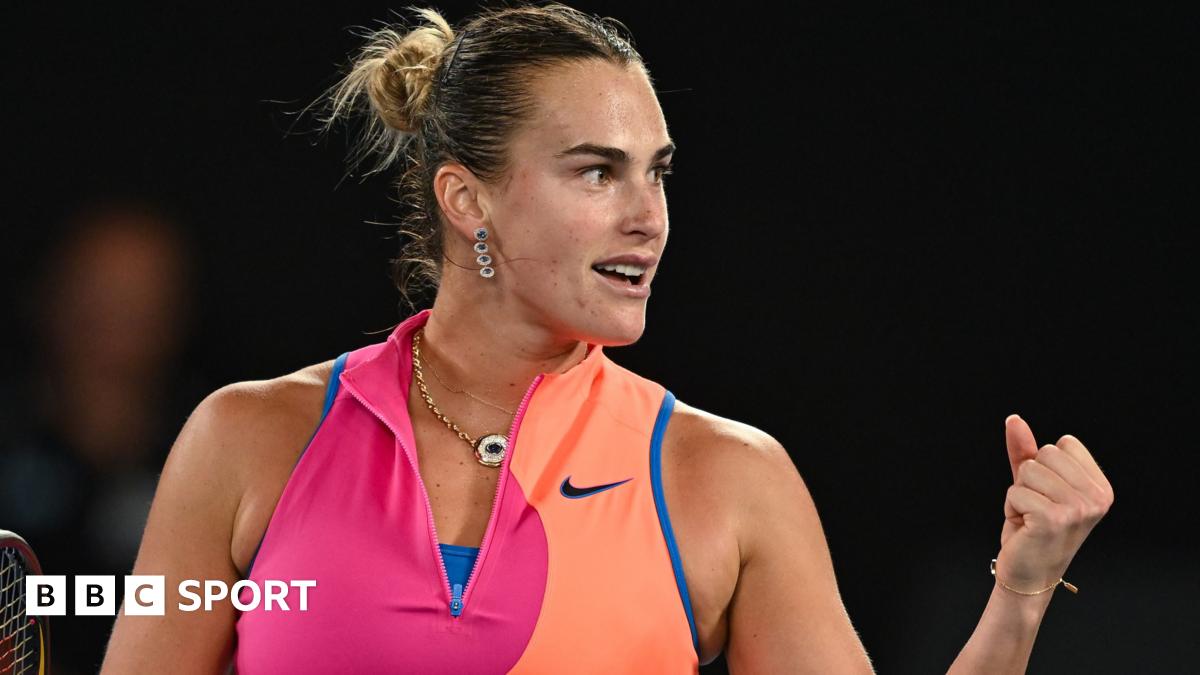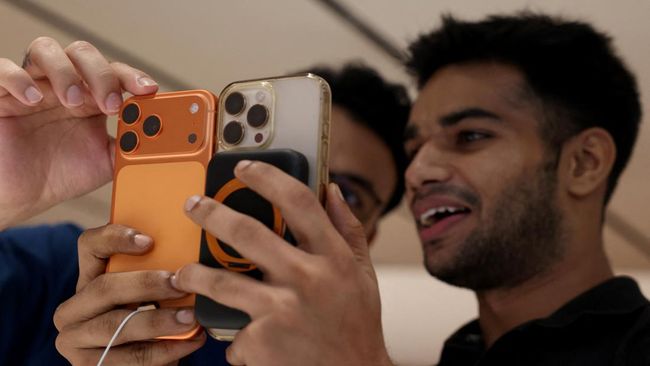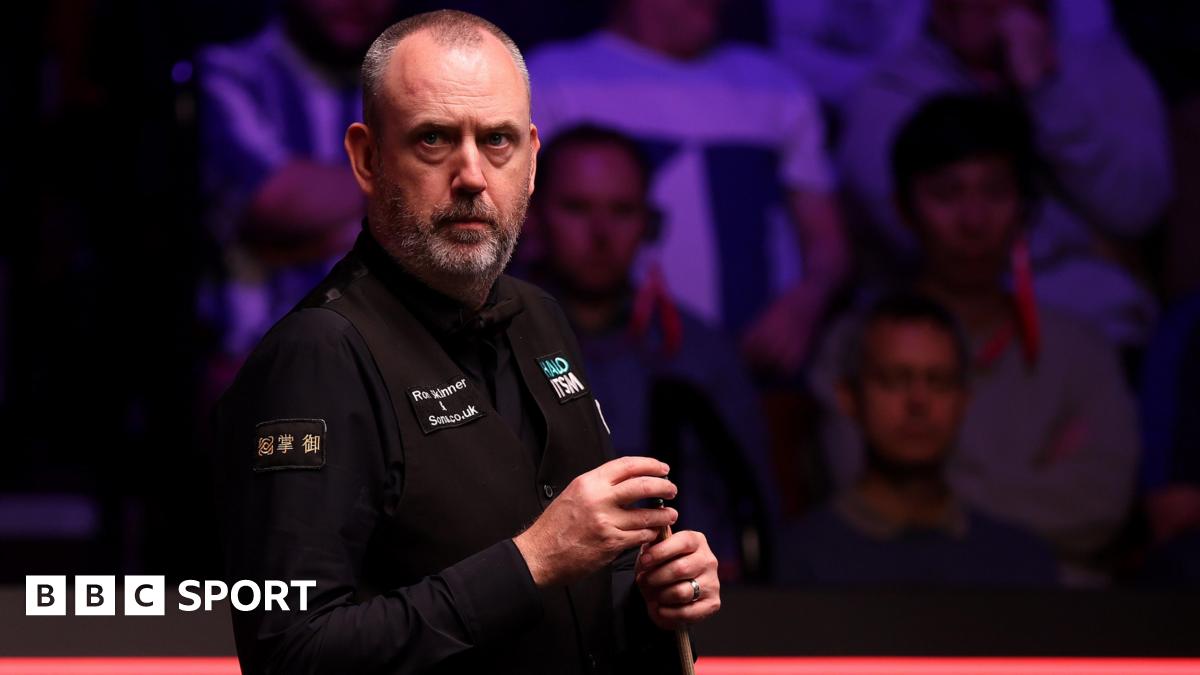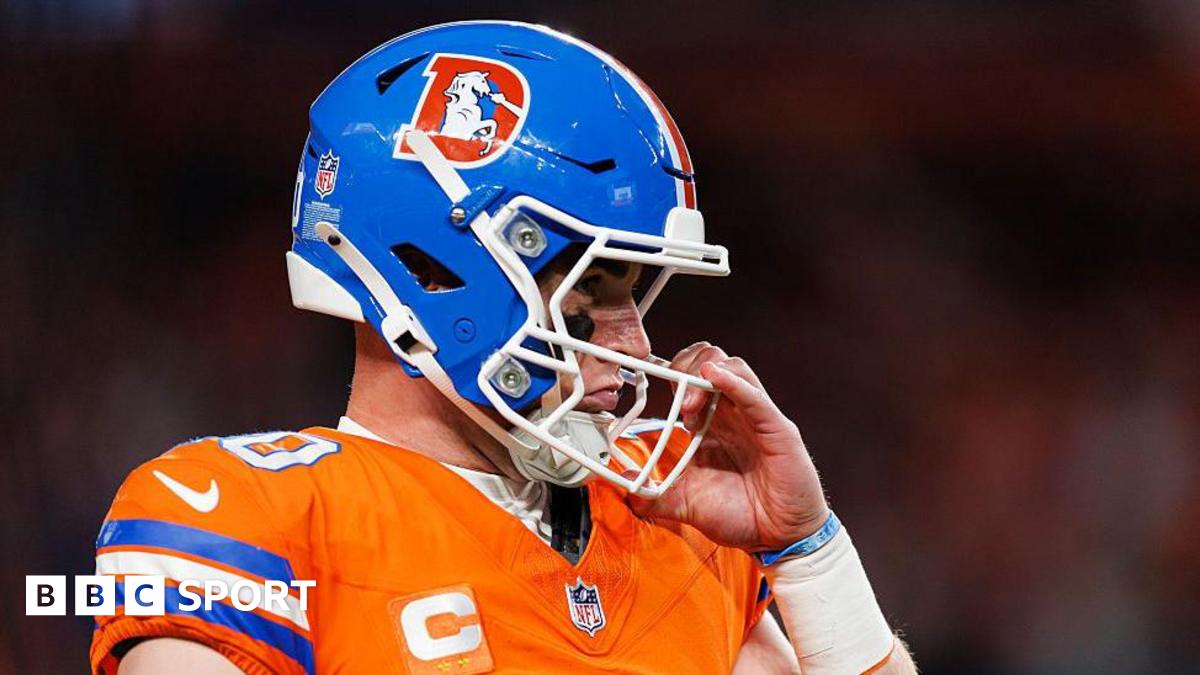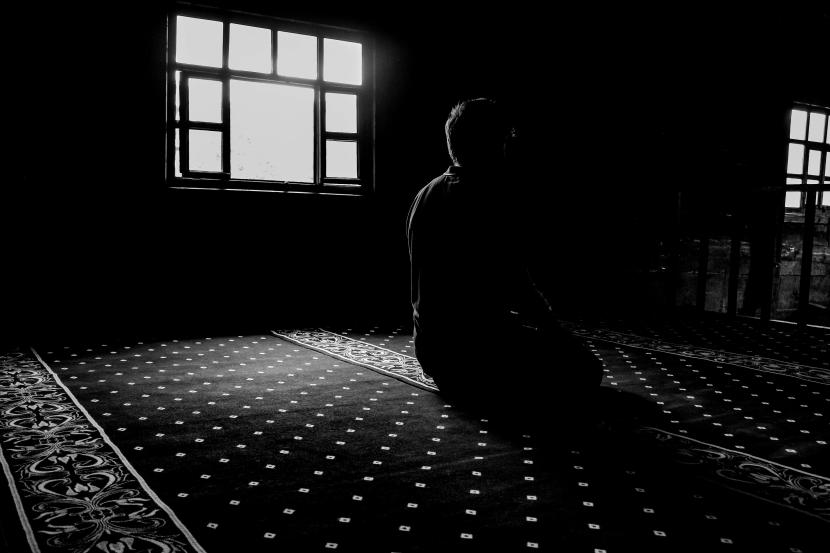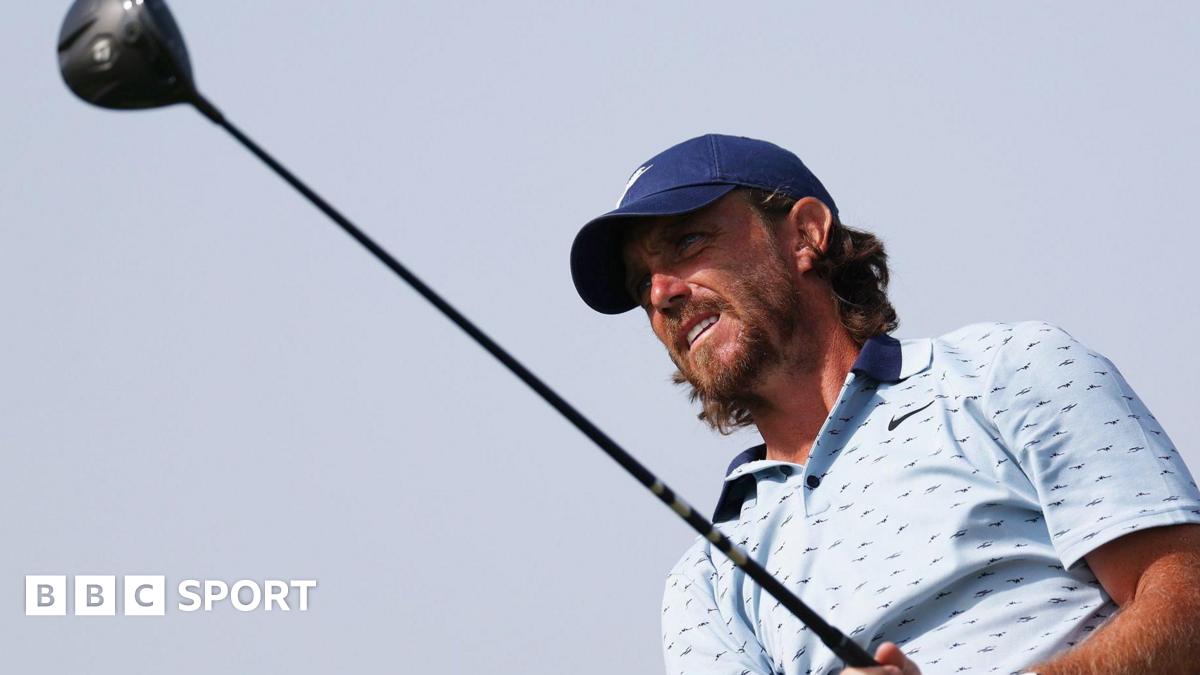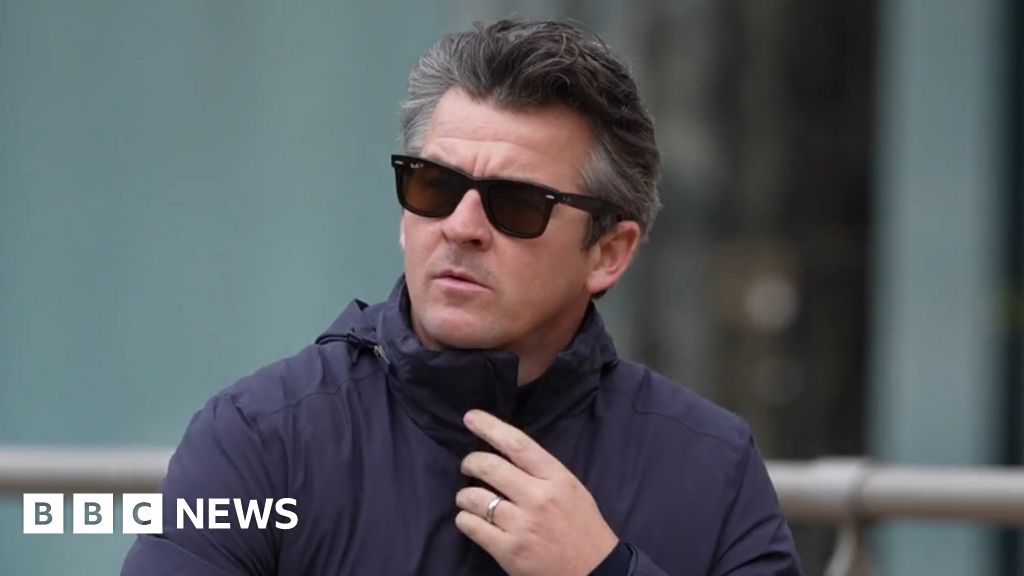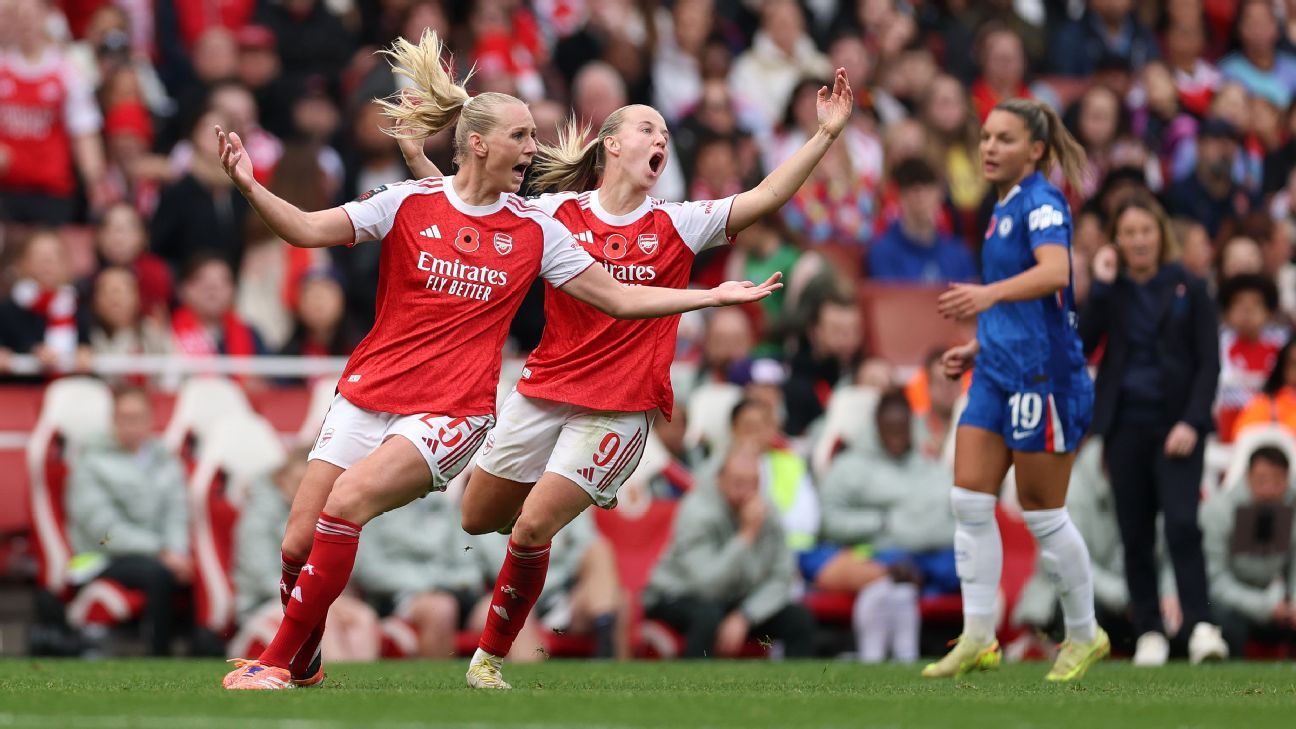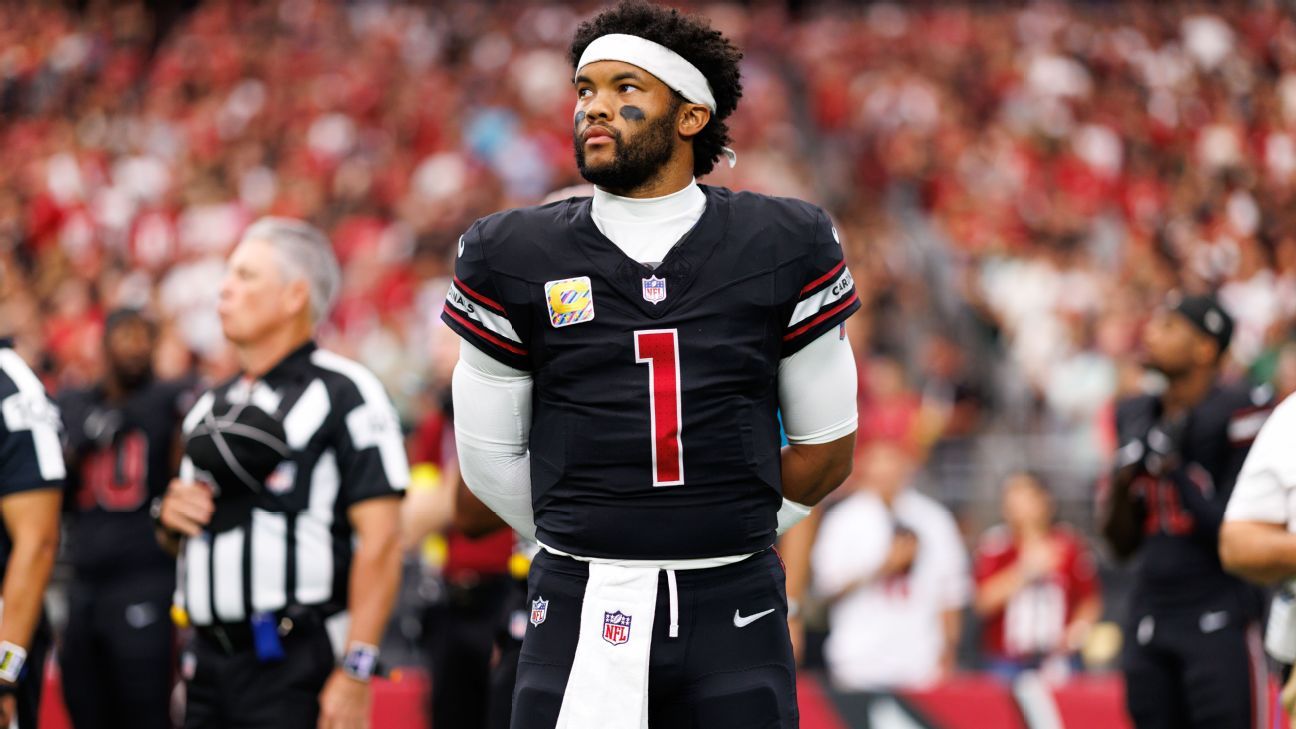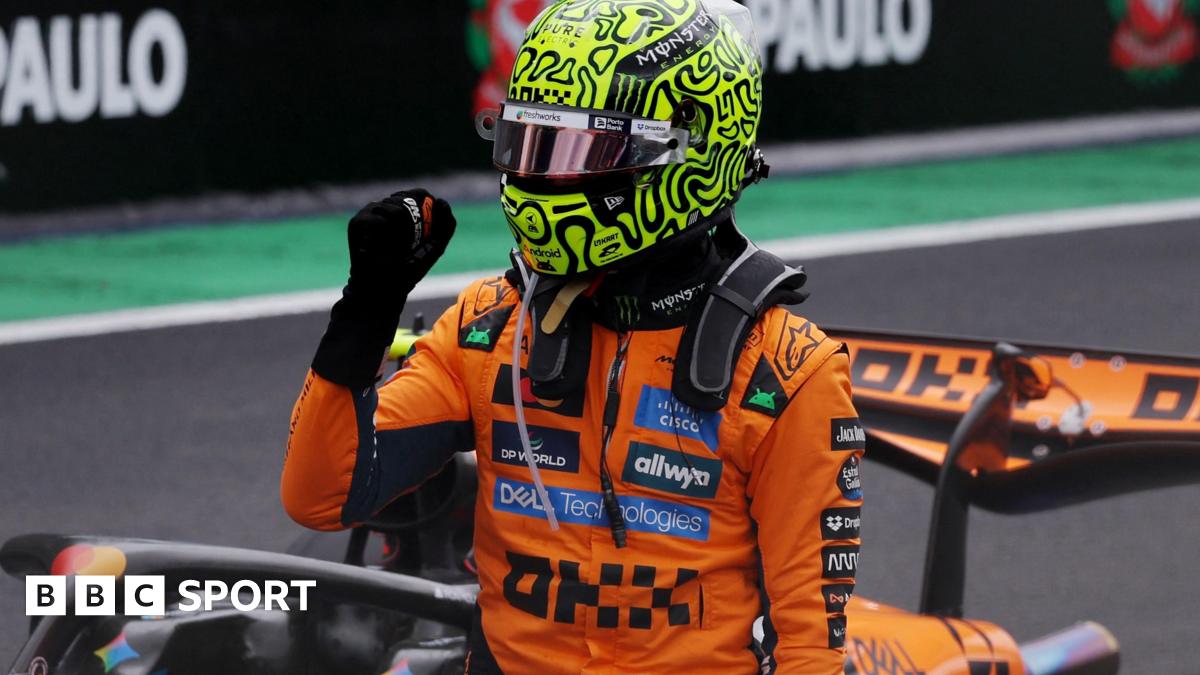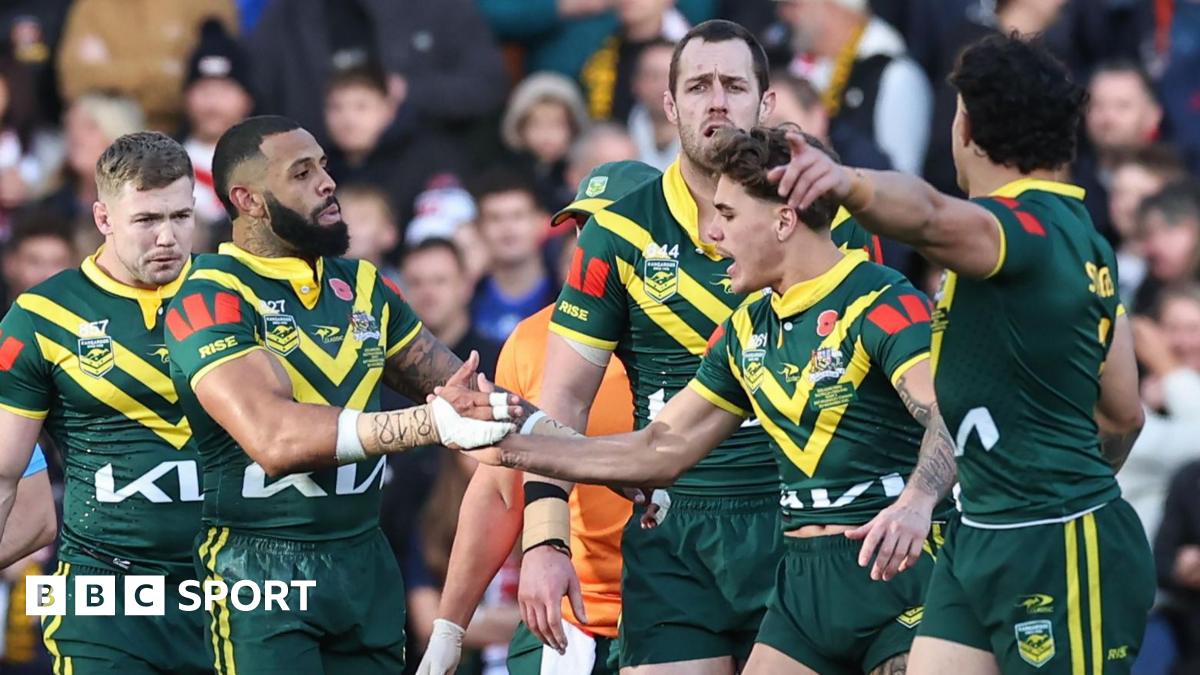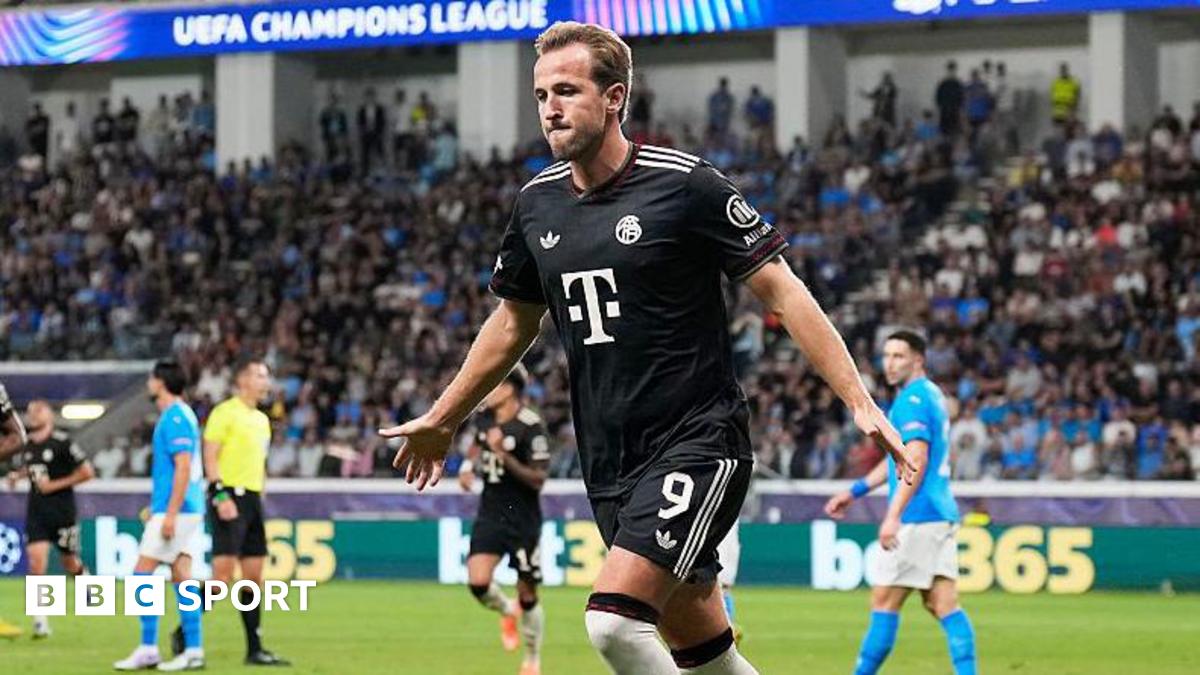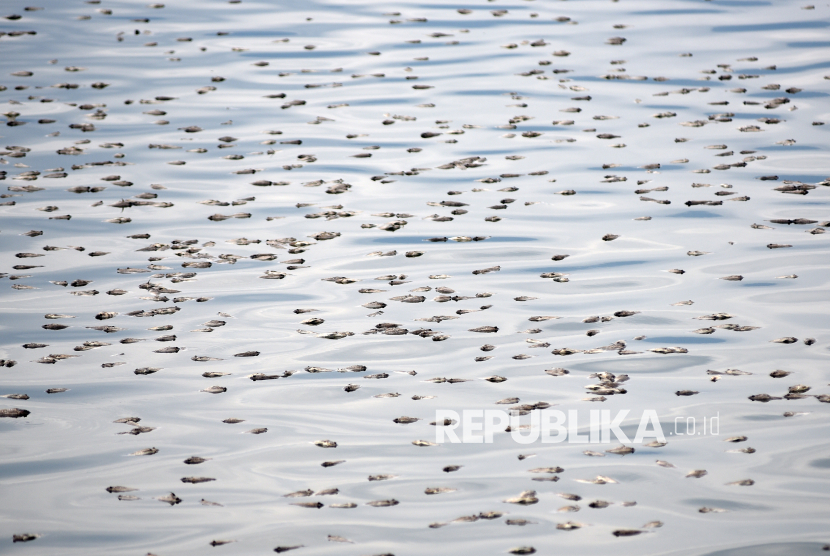When the offer first came in from Saudi Arabia, Ashleigh Plumptre's first instinct was to say no.
In 2023 the defender's contract was coming to an end at childhood club Leicester City and she was looking for a new project, something to inspire her and where she would feel valued as a person as well as a footballer.
And after negotiations and a visit to the Middle East, the Nigeria international decided to take the plunge and become the first player to move from the Women's Super League (WSL) to the Saudi Women's Premier League (SWPL).
Two years later she has signed an contract extension at Jeddah-based Al-Ittihad and wants to challenge preconceived notions from the western world about Saudi Arabia and what life is like for a female athlete.
But she admits regrets at losing the trust of some LGBT fans in women's football and acknowledges that Saudi women's football has a long way to go on and off the pitch.
'My initial reaction to Saudi offer was 'no''
Now 27, Plumptre is a cerebral young woman as well as a talented footballer. She has taken several unusual moves in her career, most notably switching international allegiance from England – where she was born and who she represented at youth level – to Nigeria, the nation of her paternal grandfather.
So when her father Tim, who is also her agent, told her of an approach by Al-Ittihad, she decided to give them a chance despite initial misgivings.
"I spoke to some teams in the UK, US and Europe, then Dad said there was a team in Saudi Arabia who are interested in you," she told BBC Sport.
"I was shocked. My initial reaction was 'no', but I wanted to give them a chance."
Plumptre was one of the first international stars to move to the SWPL, which was launched in 2022 as a fully professional competition.
There are 24 teams in the league pyramid, divided into three leagues of eight, and clubs are allowed to sign up to six foreign players.
The men's competition, the Saudi Pro League, has gained a reputation for splashing the cash to bring in major global names like Cristiano Ronaldo, Neymar and Karim Benzema.
Plumptre's representatives declined to comment on her salary and contract at Al-Ittihad, and the player herself said the project was the main draw, rather than money.
"I had an hour-long call with the coach and two people in the management staff, and I said to Dad, 'I have a really good feeling about this'," said Plumptre.
"We barely even spoke about football, but about ourselves and what we were passionate about.
"I'm someone who goes off feeling and intuition. But I wanted to go out and visit - I wanted to see what it was really like. I visited for two days and really liked it, and when I left there I thought 'this is where I want to be'."
Plumptre's move was controversial for some. Not only was she an international player in her prime moving to a league largely unknown to European audiences, but it also caused upset for gay and transgender fans in a sport where LGBT people have usually been much more welcome than in the male equivalent.
Same-sex relations are illegal in Saudi Arabia.
The nation's presence in women's football remains a controversial topic. Last year more than 100 professional female footballers signed a letter calling on Fifa to end its sponsorship deal with Saudi Arabian oil company Aramco, accusing the national authorities of "brutal human rights violations".
Plumptre said she and her team-mates at Leicester were close with the club's LGBT supporters' group, and that she received negative comments following her decision to join Al-Ittihad. Asked about this reaction, it is clear she still feels their impact.
"Especially when I moved out here, the reaction was not good at all," she said. "That was difficult.
"When I made this move there were people around Leicester - I remember some comments I received - it was like I was not the person they thought I was.
"I had deeply hurt them because they feel like I am representing something which makes them not feel valued, and I understand that. I don't really know what to say.
"It does not mean I condone certain things, even if the move means I am associated with certain things."
'Saudi life is like a peace bubble'
Like many expats in Saudi Arabia, Plumptre lives in a gated community known as a compound.
These residential compounds offer a lifestyle more like Western suburban areas and have gyms, pools, restaurants and other amenities in a self-contained area. Some even have unofficial bars which serve alcohol, which is banned in Saudi Arabia.
Plumptre says she feels happier and safer as a woman living in Jeddah than she did in the UK.
"I know international players, members of my family and friends who have come out here who genuinely feel safer here and calmer than in the UK," she said.
"A friend of mine who was out here, we described it as being like a peace bubble.
"I'll give an example. I had been to the supermarket and I had all these bags. I live in a compound. I had to take all these bags into the elevator, so I left my car out with the door open, engine on and keys in the car so I could take up my shopping.
"In the UK I would never leave my car out with the keys in. Here I have no problem.
"Naturally everyone is a bit fearful walking around at night, but I don't have to check my shoulder all the time. I know this is just the perspective of myself, not of everybody who lives here, but with the safety I feel I can't agree with some of the views the Western world have of this place."
As Plumptre says, this is just one perspective on life for a woman in Saudi Arabia.
Some of the most notably unequal practices in the country are no longer in place. Women have been allowed to drive since 2018. A year later those over 21 could apply for a passport.
But the concept of guardianship, or 'wilaya', is central to Saudi culture. Traditionally every woman has a 'wali', a male guardian who makes decisions on her behalf.
There has been some reform - women over 21 no longer need approval to access healthcare or education - but reports from organisations such as Amnesty International say this is not always practically implemented and women are still heavily restricted in what they can do, wear and say.
Asked about how she has been treated since her move, Plumptre says: "I don't feel threatened at all here.
"Men are encouraged to treat women a certain way, and there are consequences if they do not.
"Every woman can say there is a level of fear within them if they were to be out walking at night whether in the Saudi or in the UK, but there are levels of fear, and there are lower levels in Saudi based on the way men behave."
'We don't have many fans'
While the SWPL is not as star-studded as the men's Pro League, there are several major names who feature alongside Plumptre.
Two-time Women's Champions League winner Asisat Oshoala joined Al-Hilal this year, while France internationals Kheira Hamraoui and Amel Majri play in the SWPL.
And they get star treatment, including flights to games to avoid long travel times around such a big country.
But there are several obvious issues in the SWPL. One is the disparity in skill between the internationals and homegrown players. Another is the lack of fans at many of the games.
Plumptre admits there is plenty of catching up to do.
"It's not something I will ever hide away from - the standard is not what I'm used to in the WSL or at international level, and I worried how that would impact myself and my development," she said.
"One of my club and international team-mates, Francisca Ordega, said in Saudi we must do more. The pace is not as fast, so you must think in different ways, and push yourselves beyond boundaries that you didn't before. There is more responsibility on you."
Facilities, Plumptre says, are good for players. Al-Ittihad is not just a football club, but also has teams in swimming, volleyball and basketball, and Plumptre says they have adapted to the arrival of women's football since 2023, although the state-of-the-art facilities do go to the men.
Unlike in the WSL, the squad train in the evening when temperatures are cooler - something Plumptre prefers as it reminds her of training after school while at Leicester academy, as well as leaving her days free.
"When I first came here, we were using the same gym the volleyball and basketball teams use," she said.
"Now we are in the old men's gym. The men's team have a new facility. We have a medical clinic, access to ice baths, our own locker room. We train on the main field, separate to the men. When I got here the field was not great at all, so we pushed on that and people listened."
The biggest problem is attendances. Other than Al-Ula, every SWPL team play in a stadium with a capacity less than 15,000, and crowds are sparse.
"We don't have many fans," Plumptre says.
She puts this down to an absence of community initiatives in Saudi Arabia to get children attending games with their families and giving out free tickets in schools. This has played a huge part in the WSL growing attendances and fanbases among children and families, and Plumptre says this is being worked on by Saudi clubs.
Matches are available to watch on TV in the Middle East on the Saudi Sports Company network and the Shahid streaming platform. Saudi-backed DAZN has the broadcast rights in Europe.
As for Saudi Arabian women's football on a global stage, there is plenty of work to be done. Hosting the men's World Cup in 2034 and Aramco's partnership with Fifa has led to speculation about a bid for the Women's World Cup soon.
Plumptre, however, feels the aims need to be more realistic.
"In the near future I would say 'no' [to Saudi hosting a Women's World Cup], because everything takes time," she said.
"I really care about helping these Saudi players develop and I don't want things to happen too soon. I believe in the process, taking measurable and decisive steps - make it long-lasting.
"It is not about trying to rush something. If you put the Saudi team on a stage they are not ready for, it is unfair for them and women's football."
Ben Haines, Ellen White and Jen Beattie are back for another season of the Women's Football Weekly podcast. New episodes drop every Tuesday on BBC Sounds, plus find interviews and extra content from the Women's Super League and beyond on the Women's Football Weekly feed

 3 months ago
47
3 months ago
47







